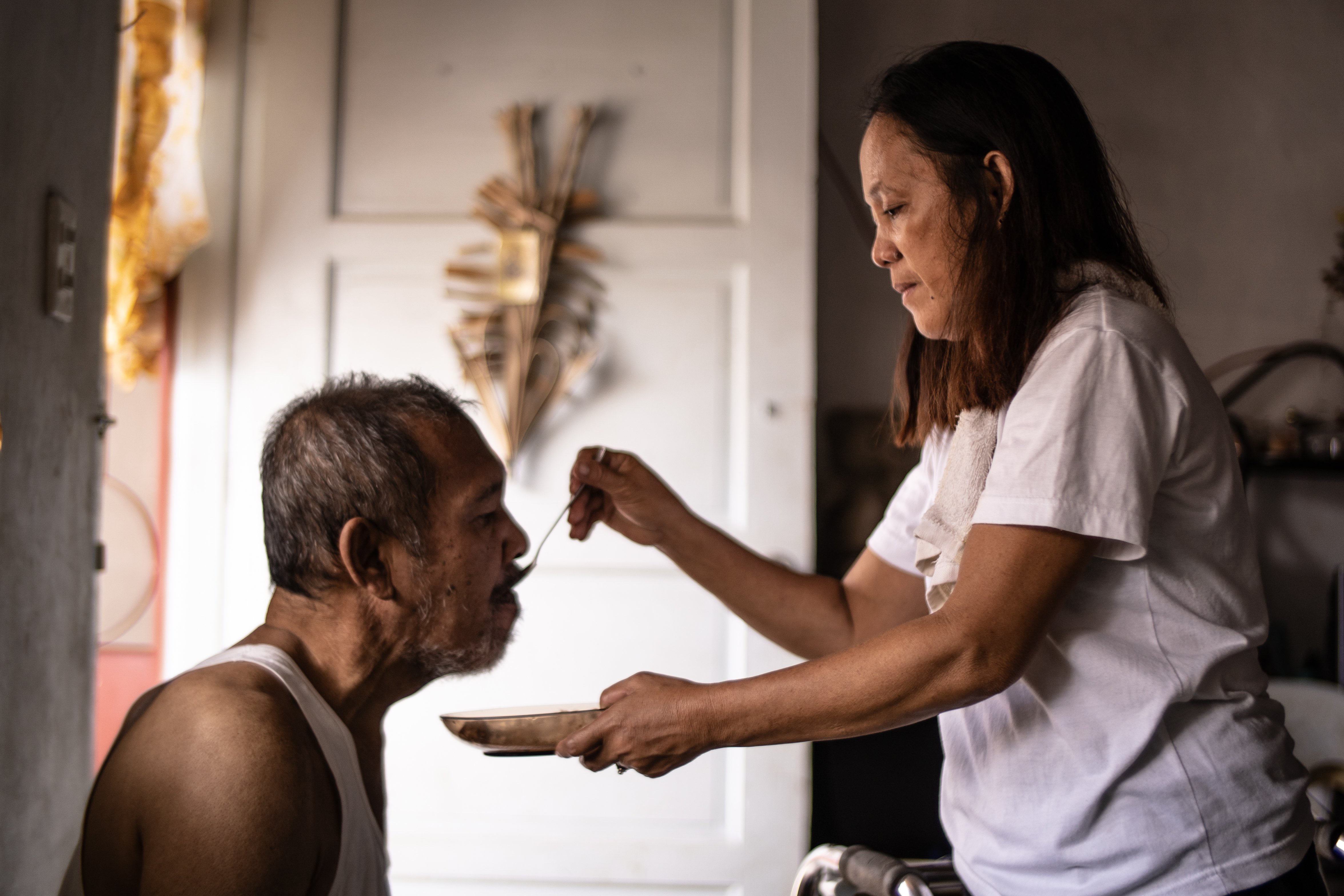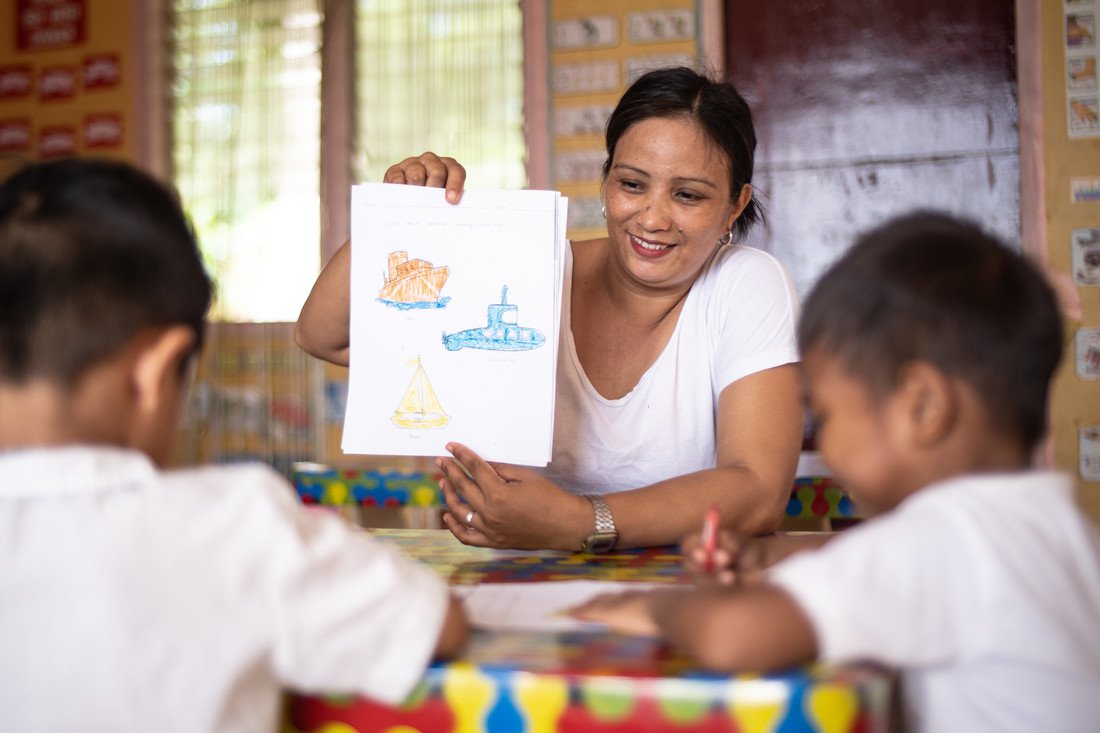Women perform the bulk of unpaid domestic and care work, which adds trillions to the global economy. But they aren't seeing any of the benefits.
There’s a belief in many parts of the world, including the US, that doing household chores and taking care of children, the elderly, and family members is “women’s work.” This work is central to our daily lives—our societies wouldn’t function without it—yet it continues to be undervalued.
Women and girls spend about 12.5 billion hours every day on unpaid care and domestic work. If we were to monetize this for women aged 15 and older, it adds up to $10.8 trillion a year—three times the size of the world’s tech industry. For those who are already in low-paying jobs and dealing with economic discrimination, care work weighs especially heavy. When your “free time” is spent taking care of everyone else, that leaves little time to access opportunities in education, healthcare, and decent paid work. Globally, 42 percent of women can’t get paying jobs because of their caregiving responsibilities.
Three women from Eastern Visayas in the Philippines share the ways they’re forced to balance their work and family life.
Arlene Cinco

Arlene Cinco, a shop owner and mother of four in the Philippines, loves to spend time with her kids and watch TV together. But she can rarely do this. In 2016, Cinco’s husband, Eduardo, suffered a stroke that left him paralyzed. Cinco is now the sole breadwinner in her family and works several jobs to earn money for food, electricity, her children’s school fees, and medicine for her husband.
“I became the mother and the father of my family,” she says. “I do all the work at home while trying to earn money.”
Cinco sells food and ginger tea to teachers and schools, offers manicure services, and sometimes does other peoples’ laundry for extra cash. The rest of her time goes into unpaid care work, such as fetching water and buying groceries and medicines, bathing her husband, and doing the household chores.
Rowena Abeo

Rowena Abeo is a day care teacher in the Philippines, a job she loves. She wasn’t always this happy to go to work. Before her husband began doing his share of care work and household chores, Abeo balanced her teaching job with cooking, cleaning, fetching water, and looking after her family. She was exhausted, and the long hours took a toll on her health.
“Being a housewife takes so much time,” she says. “I have so many things to do that I can’t finish right away. The heaviest housework is fetching water. It takes us three to four hours to go and get water because our water source is far. We have to go to the river and lift our own water cans. In the past, my husband and I didn’t question it.”
Abeo and her husband started attending trainings and seminars organized by Oxfam through our We-Care program, which encourages boys and men to do their share of care work in the households. The training also helps people push decision-makers to invest in public services and infrastructure that help reduce women's care work responsibilities.
Now Abeo’s husband cooks, cleans, and looks after their young child while she’s at work. “Our relationship as a family became better. We’re happier,” she says. Abeo is finally able to take care of herself—and even spend time having fun.
Ruth

Ruth is a mother of seven, a full-time job of which she’s very proud. She’s the first one up in her household, feeding the kids and getting them ready for school, and the last to bed after she cleans the house and washes everyone’s clothes.
Her husband, a tricycle driver, helps when he can. Since the birth of their baby, he now does the laundry and fetches water. If Ruth had more free time, she would want to run her own small business.
How do we close the gap?
The first step is recognizing, reducing, and redistributing unpaid care work. Only then will women and girls be able to achieve their full potential.
We’ve seen this in our work in Eastern Visayas, Philippines, where more and more men are taking a lead in performing care duties, and local governments are enacting laws that put unpaid care work issues at the negotiation table.
After attending Oxfam trainings, Melvin, a father of six, realized just how significant sharing care work can be after he took on more chores in the household. Once he started fetching water and cooking, he says their financial situation noticeably improved.
When everyone takes responsibility for care work, everyone reaps the benefits.
